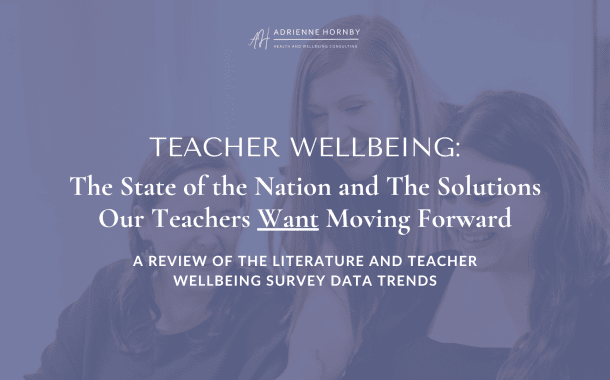
Busy isn’t Cool! An Argument in Favour of Slowing Down
In today’s day and age, we are beginning to live our lives at a relentless and unforgiving pace. Today, society glorifies being “busy.” Especially in the western world. Busy means powerful, important, and capable. When people ask you how you are, it’s cool to say “busy.”
Being busy isn’t cool. Is it cool to be drained, unhappy, judgemental of ourselves, forgetful, and at times, rude! Cortisol is spiking, adrenaline is firing from the second we get up in the morning, we are tired when we wake up but wired when we go to sleep. Being crazy-busy implies stress, and our body can only take so much pressure before it activates its stress response and runs on “survival or panic mode.”
Busy is an illness—a global epidemic. I am afraid that it has hit people of my generation harder than we have ever seen before. With every year we grow older, we get busier. We get more stressed; we try to live up to more expectations, adding more and more to our load. Recently, a number of events led me to realise I had a serious case of ‘Rushing Woman’s Syndrome’ – a term coined by Doctor Libby Weaver. I hit my wall, and I hit it hard. However, I have come a long way from the person I once was—a person who ran herself into the ground regularly.
It’s pretty common knowledge that our bodies don’t respond well to stress. When cortisol (our primary stress hormone) is elevated for a prolonged period of time, our immune system starts to falter, anxiety steps in, libido diminishes, and aging is accelerated. (And no, not the wrinkles!!!)
Being busy all the time causes significant stress-related symptoms:
Memory loss – constantly forgetting where things are, losing your train of thought mid-sentence, jumping from task to task, or forgetting where you left off. Cortisol, the hormone released when you are stressed, damages the brain over time and can lead to memory problems.
Irritability – When we are stressed, our minds are so overloaded that we are unable to process situations and information logically and calmly. Hence, we have less and less tolerance for mistakes and irregularities.
Waking up tired – Morning fatigue is one of the surest signs that you are overworked, overstretched, and overscheduled. The feeling of overwhelming tiredness after waking up indicates that you have not rested well during the night. You may have gone to bed and shut your eyes early, but your busy mind just won’t shut down.
Frequent headaches – Tension headaches are among the most common symptoms of chronic stress. Part of the body’s response to stress is muscular contraction; however, when exposure to stress is prolonged, muscles often spasm, resulting in some sort of pain or discomfort. Spasm of the muscles in the upper back, neck, and scalp area result in tension headaches.
Sulky, sooky moods – Stress can cause a roller coaster of emotions because it directly affects your body’s hormone levels and causes brain disturbances. Therefore so many people who have been exposed to a great deal of stress for a prolonged period see an altered shift in their moods.
We only have 24 hours in a day, so why are we trying to cram 120 hours’ worth of stuff into them?!? Sometimes we need to ask, ‘Why am I so busy? What am I running from? What don’t I want to acknowledge when I am alone with myself?’ What is it? With this awareness of why you cram so much into your day, you can begin to hop off the hamster wheel! If you don’t want to continue on this trajectory, you have to adjust. Nothing will change until you take charge of your life and pull back.
So, what can you do to return to the best version of yourself and take control of your life and time again?
Sleep – something’s got to give. Get to bed earlier and aim for 8 hours. If you struggle to wind down, then switch off the TV and all technology and spend the hour before bed reading a book (not your phone) under lamp light only. You will be out like a light in no time.
Prioritise – what is most important in your life? Write a list of important tasks and only tackle a couple each day. Let people know that you have a lot going on and that they may have to wait a little longer before you can get back to them. People (decent people) appreciate and relate to vulnerability. So let people know if you need extra time to do things.
Practice mindfulness – If you need to quieten your mind, try out some guided meditation. There are a million short exercises on YouTube (anything by Deepak Chopra is usually a good one) or give an app a go, Smiling Mind is excellent.
Try out another way to calm your mind – Go for a walk, pat your dog (or a stranger’s dog), go for a coffee alone, read a book, take a bath, anything that gives you even 30 minutes to yourself.
Plan to be stressed – When locking in future tasks, think ahead and plan to be stressed – Ask yourself, “Would I be able to handle this task with little sleep or while stressed?” If the answer is yes – then SAY NO.
Allocate time for yourself – bath, face mask, call a friend, yoga – any self-care task that makes you happy. Put it in your calendar at least once a week and stick to it. Self-care Sundays are a fun way to do this. Make the day (or even just a few hours of it) all about you.
Plan in downtime – time to rest, sit, read, watch a favourite TV show, or do nothing. Resist the urge to ‘fake rest.’
Let yourself feel emotions if you need to – It’s okay to have a bad day. Don’t feel bad that you aren’t always in a bright and bubbly mood. Just have a stern talking to yourself if this happens more often than not.
Chat to someone – be vulnerable and let someone know how you are feeling. Sometimes just talking about things is so helpful, and you never know when a friend’s advice can help you gain clarity on a situation.
Don’t get so busy making a living that you forget to make a life. You can do it all, just not all at once. When you are able to achieve that lovely balance of self-care and life tasks, things fall into place, and life seems more manageable. The more you work yourself up and kill yourself trying to live up to high expectations (that you have set for yourself), the more the important things in life suffer. You will never regret living your life in alignment with your priorities, but I can assure you, you will regret a life filled with work, stress, and unfulfilling tasks.
From the blog
Optimising School Workload with Practical Tips and Resources from the AITSL Workload Reduction Toolkit
Ask any teacher or school leader about their biggest source of stress, and you’ll likely hear the same answer: workload. Evidence indicates that school leaders…
Teacher Wellbeing: The State of the Nation and The Solutions Our Teachers Want Moving Forward
Teacher wellbeing is not just a personal issue; it’s a professional necessity. It’s closely tied to educator success and student outcomes, and a lack of…
Staff Morale in Schools: How Culture, Leadership and Staff Drive Engagement
If you’ve been leading or working in a school over the past few years, you’ve probably felt it – the subtle, steady dip in energy,…



